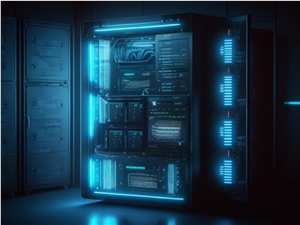The rise of Artificial Intelligence (AI) in the field of architectural design is unstoppable, but it is not all-powerful; at least for now, it cannot replace human creativity.

Image Source Note: Image generated by AI, image licensed from Midjourney
Discover Popular AI-MCP Services - Find Your Perfect Match Instantly
Easy MCP Client Integration - Access Powerful AI Capabilities
Master MCP Usage - From Beginner to Expert
Top MCP Service Performance Rankings - Find Your Best Choice
Publish & Promote Your MCP Services
The rise of Artificial Intelligence (AI) in the field of architectural design is unstoppable, but it is not all-powerful; at least for now, it cannot replace human creativity.

Image Source Note: Image generated by AI, image licensed from Midjourney
Welcome to the [AI Daily] column! This is your daily guide to exploring the world of artificial intelligence. Every day, we present you with hot topics in the AI field, focusing on developers, helping you understand technical trends, and learning about innovative AI product applications.

The National Research Center and Weitai Robot jointly launched the world's first large-scale cross-entity vision-touch multimodal dataset, Baihu-VTouch, aimed at solving the challenges of tactile perception in robotic fine manipulation, filling the data gap in this field and providing an important resource for developers worldwide.

North Korean hacker group Konni uses AI to develop malware targeting blockchain developers in Asia-Pacific, with PowerShell backdoor scripts showing clear LLM-generated traits and advanced camouflage capabilities.....

World Labs, founded by Li Feifei, is raising $500 million at a $5 billion valuation, a fivefold increase in a year, signaling investor confidence in its leadership in the next AI frontier beyond large language models.....

Beijing's 16th People's Congress opens, reviewing the '14th Five-Year Plan' draft, focusing on AI and green energy as emerging pillar industries, aiming for trillion-scale growth. Over the past five years, Beijing has enhanced tech innovation, fostering industries like new-generation IT.....

Alibaba's Qwen3-TTS series, an open-source speech generation model, features an end-to-end architecture enabling second-level voice cloning, natural language voice design, and real-time streaming. Its innovative Dual-Track mechanism with discrete multi-codebook language model achieves ultra-low latency, lowering barriers for real-time applications.....

BaiChuan Intelligence introduces the Baichuan-M3 Plus medical large model, specifically designed for high-reliability medical scenarios. The model integrates the 'Six-Source Evidence-Based Paradigm' into the entire training and reasoning process, ensuring that diagnostic recommendations and medication alerts are based on authoritative medical evidence. Its factual hallucination rate has been reduced to 2.6%, more than 30% lower than GPT-5.2, significantly enhancing the clinical credibility of medical AI.

Baichuan-M3Plus model by Baichuan AI enhances medical Q&A accuracy and reliability, significantly reducing hallucination rates and setting new industry standards.....

OpenAI CEO Sam Altman recently visited the Middle East to discuss funding matters with top local investors. The company plans to raise at least $50 billion, with an estimated overall valuation ranging between $750 billion and $830 billion. The negotiations are still in the early stages.

Apple plans to launch a new Siri, codenamed 'Campos', at WWDC 2026, transforming it into a ChatGPT-like AI chatbot deeply integrated into the system to compete with OpenAI and Google.....

Welcome to the [AI Daily] section! This is your guide to exploring the world of artificial intelligence every day. Every day, we present you with the latest content in the AI field, focusing on developers, helping you understand technical trends and innovative AI product applications. Click to learn more about new AI products: https://app.aibase.com/zh1. ByteDance launched a new AIAgent platform, Cog 2.0, with the AgentSkills feature attracting attention. ByteDance launched a new AIAgent platform, Cog 2.0, through Age